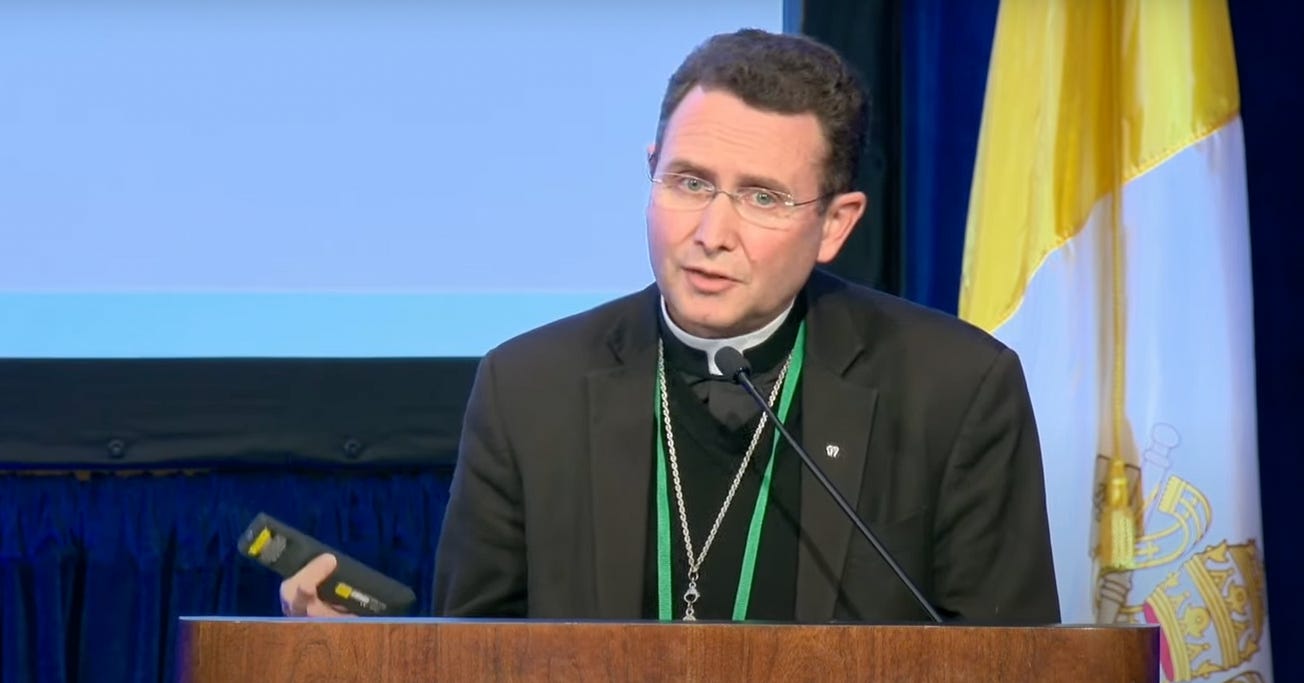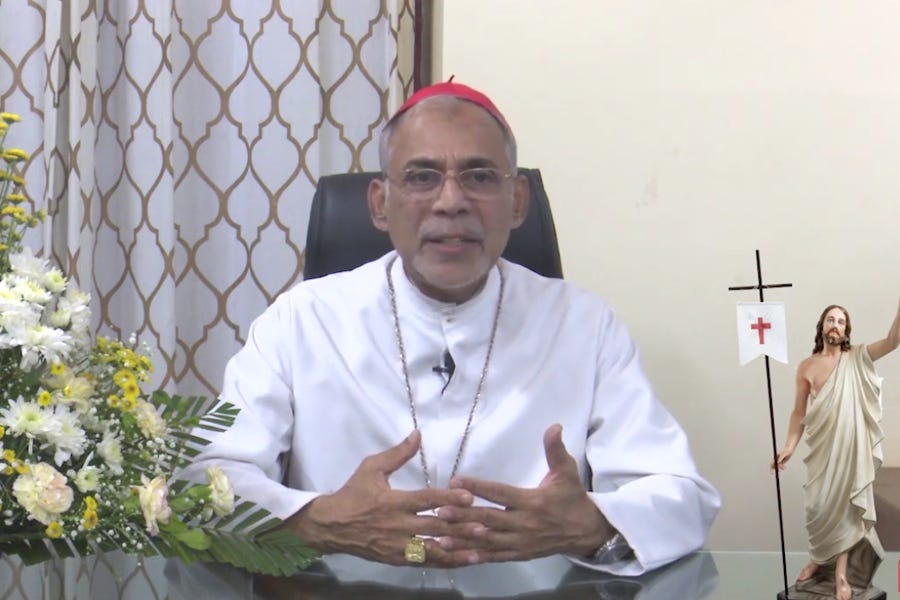Medicine is supposed to be an art and science focused on the good of the patient — on health and wellbeing, on human flourishing.
Healthcare is supposed to be about healing, right? But what if it’s not?
What happens when medicine loses its focus, becoming mostly about technocratic moral reasoning and the desires of patients, however harmful?
What can be done to fix it?
A recent book, co-authored by physician Farr Curlin and philosopher Christopher Tollefsen, asks those hard questions.
The Pillar’s Charlie Camosy talked with Curlin and Tollefsen about “The Way of Medicine: Ethics and the Healing Profession.”
This interview has been edited for length and clarity.
Your book claims that the practice of medicine is spiritually deflated and morally adrift.
The Pillar’s readers should get the book for a full account, but can you give us a brief defense of your position?
We argue that the medical profession has neglected a question that anyone thinking about going into medicine must consider: what is medicine?
The question is really about medicine’s point: we understand what medicine is by understanding what it is for: what is its point, purpose, or end?
A common-sense answer is that medicine is for the sake of human health: medical practitioners make a commitment to the pursuit of the health of their patients. They commit to serve their patients’ health, and they also commit never to act contrary to the good of the health of their patients. We call these common-sense commitments the “Way of Medicine,” we and think that the Way is amply illustrated in the lives of exemplary practitioners of medicine going back to Hippocrates.
But a lot of medicine operates according to a different vision, which we call the Provider of Services Model (PSM).
In the PSM, physicians have a set of technical skills which are used to satisfy patient desires and preferences, provided only that the desired use of these skills is legal, is technically feasible, and is chosen by the patient. Sometimes these desires and preferences seem to have little to do with health – medicine today is used to keep unruly children in line, or for essentially cosmetic purposes, for example. But more problematically, medicine is increasingly used for purposes that are obviously contrary to the good of health, such as physician-assisted suicide, abortion, and surgeries that damage or mutilate a person’s secondary sex characteristics.
On this model, then, physicians operate in a de-moralized arena of service to patient desire. That hardly seems a vision in which medicine can be practiced as a vocation, not merely a job. We think that many physicians sense the disconnect between what they thought they were committing to – indeed, what they were called to - and what they are now asked and expected to do, and this disconnect has led to a crisis of morale in much of the profession.
I wrote a book recently which argues that those of us with theological commitments need to be more confident about carving out a place for them in medicine and bioethics.
Is there a way to 'reinflate' the spirituality of medicine without theology?
We think the Way of Medicine has to be the starting point for that. Think of the spiritual renewal of medicine along the lines of grace perfecting nature. We must recognize the goodness of nature to discern how grace can lift it even higher. Only creatures made in the image and likeness of God, for example, are offered adoption into God’s triune family.
Similarly, the practice of medicine has long been recognized as something noble enough in itself that it also is a practice in which a physician’s most fundamental religious commitments can be lived out. This can be seen by thinking of the necessary conditions for a specifically Christian form of medicine.
In any Christian account, medicine will require commitment and self-giving—love of neighbor. And the practice of medicine will resonate with Christ’s earthly mission of care for the suffering and most vulnerable among us. We think the Way of Medicine is compatible with these requirements (and those of other traditions, such as Judaism and Islam) and that the Provider of Services Model is not.
Christ’s care for those around him was marked by deep concern for their health, and his ministry was centrally, though not ultimately focused, on physical healing. So those who want to follow Christ, and be Christ-like, can find in the Way of Medicine a starting point for attending to the sick in a way that fits a Christian’s vocation.
Why does medicine need the rule of double effect? At the risk of nerding out here, I have to say how excited I was to see that double effect got its own chapter in your book!
Well, you are our kind of nerd, then!
Any practice that serves some dimension of human good and human well-being and flourishing must not only promote that dimension of the good, but also protect it. So medicine’s promotion of and service to the good of health must be complemented by a resistance to damaging or harming that good.
But pretty obviously, the health-protecting norm of the medical profession cannot be “never do anything that will as a matter of fact bring about harm.” Physicians in a triage situation, for example, would violate that norm whatever they did. Surgeons who cut, oncologists who oversee chemo, and physicians who administer analgesics while accepting some risk of impaired breathing, would all be in violation of that norm.
A norm against intentional harm to the health of one’s patient, by contrast, is a norm that can be followed and that is deeply consistent with the foundational commitments of medicine. Understanding that norm requires getting a handle on the distinction between what is intended (on our view, what is pursed as an end, or chosen as a means) and what is a side effect. The rule of double effect, on our view, says that effects that are never to be intended, including death and harm to health, may sometimes be accepted as side effects, provided there is an adequate reason to accept them. This rule is indispensable on the Way of Medicine.
You spend a lot of time on authority in this book. How do you think the Covid-19 pandemic has affected the authority of medical practitioners?
It certainly has taken a toll on the authority of public health officials, and our book helps explain why.
Medicine serves health, but health is only one good among many, including knowledge, friendship, religion, and many others. Medical professionals know a lot about health; but they don’t know, and can’t know, everything about the role that health plays amongst the diversity of goods in a patient’s life. So while physicians have an authority of expertise, patients have the final authority to accept or decline any proposal that the physician makes. That authority is recognized in the principle of informed consent.
In light of patients’ authority, physicians abuse their authority when they act as if health is the only or the most important good, as if the physician’s proposals must take priority over the patient’s other concerns.
But with respect to the pandemic, medical and public health experts have problematically blurred the distinction between expertise about how to bring about a certain public health goal (which they have, to some extent) and expertise about what is most reasonable, all things considered. By acting as if only certain aspects of public health matter, they often have neglected other needs, such as needs for education, work, friendship, and worship. In so doing, they have abused their medical or scientific authority, and that abuse has undermined their moral authority.
But at the same time, we have seen the moral authority of medical practitioners arguably increase over the past two years, as countless doctors and nurses have shown up, day in and day out, practicing the Way of Medicine—attending to those who are sick, without respect to their other characteristics, and seeking to preserve and restore their health.
The pandemic has made heavy demands on medical practitioners, and many have responded with heroic devotion. We owe them our gratitude.
One in seven people who go to a hospital in the United States are seen in a Catholic institution. How do you see the future of Catholic healthcare?
Only one of us is Roman Catholic, but both of us are Christians, and we agree that Catholic hospitals should be fully Catholic: not just in the procedures they refuse to perform, but in the positive commitment to health care as an apostolate.
In a fully Catholic hospital, the good of health central to the Way of Medicine is understood in a deeper way in light of Church teaching about the dignity of the human person and the redemptive work of Jesus; that same good of health is pursued as a specific form of witness to the Good News and as a form of cooperation with the divine; and the poorest and most needy are shown special favor as an extension of the sharing in Christ’s ministry that Catholic healthcare workers participate in.
While there is much to love and admire in Catholic healthcare today, the above – extremely abbreviated! – account seems to us more aspirational than descriptive.
If there is to be a future of Catholic health care, then Catholic physicians, medical educators, and healthcare institutions need to start asking not just what medicine is for, but what Christian and Catholic practices of medicine are for.
We think a helpful starting point might be to reconsider the Way of Medicine.




